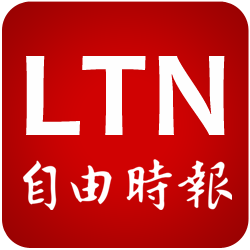[Central News Agency] Following US President Biden, European Council President Michelle mentioned the EU's support for the stability of the Taiwan Strait in his speech at the general debate of the UN General Assembly today.
When the situation in the Taiwan Strait is tense, it is rare for European and American leaders to take this international occasion to stress the importance of peace and stability across the Taiwan Strait.
On the 4th day of the General Debate of the 77th UN General Assembly, Charles Michel, speaking on behalf of the European Union (EU), focused on condemning Russia's invasion of Ukraine, and then changed the subject: "We hope that rising countries will sincerely participate for the sake of peace. collective efforts with development, including China.”
Please read on...
He continued: "We support maritime security, we support stability across the Taiwan Strait. We recognize the one-China principle, but we will not turn a blind eye to human rights violations, especially in Xinjiang and Hong Kong."
Coincidentally, Biden also mentioned the situation in the Taiwan Strait in the general debate of the UN General Assembly on the 21st, becoming the first US president to do so in recent years.
He reiterated the U.S. policy position at the time: "We seek to maintain peace and stability across the Taiwan Strait, pursue the one-China policy of preventing conflicts over the past 40 years, and continue to oppose unilateral changes to the status quo by either side of the Taiwan Strait."
In recent years, cross-strait relations have deteriorated, and Beijing has stepped up its offensive and military threats against Taiwan.
In August this year, China launched a large-scale military exercise around Taiwan after the US House of Representatives Speaker Nancy Pelosi visited Taiwan.
Under the leadership of the United States, the communiqués or joint statements of the Group of Seven (G7), the US-European summit and other meetings for more than a year have included words concerning the peace and stability of the Taiwan Strait and encouraging peaceful resolution of cross-strait issues.
Now the leaders of the United States and Europe have voiced their concerns about the situation in the Taiwan Strait at the General Debate of the UN General Assembly. Whether it becomes a practice remains to be seen.
As the competition between the United States and China intensifies, the relationship between Europe and China has gradually undergone qualitative changes.
After the outbreak of COVID-19 (coronavirus disease 2019), many European countries were dissatisfied with China's aggressive diplomatic style, and repeatedly concerned about issues such as human rights and democracy that had been downplayed in the past to strengthen bilateral economic and trade relations.
Although Michele did not elaborate today, he bluntly stated at the General Debate of the UN General Assembly two years ago that the EU believes in values different from China's.
In recent years, Beijing has tightened its control over the Xinjiang region, and has detained a large number of Uyghurs in camps in the name of vocational training, which has been repeatedly criticized by the international community.
In order to suppress anti-government protests in Hong Kong, Beijing enacted a national security law for the Hong Kong Special Administrative Region in 2020, which will severely impact Hong Kong's high degree of autonomy.
(Editor: Xu Ruicheng) 1110924
